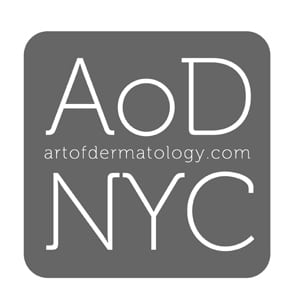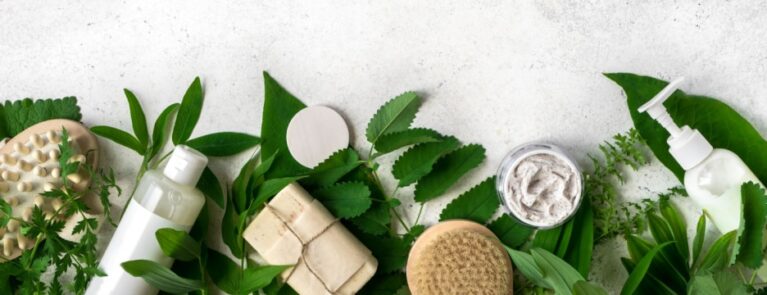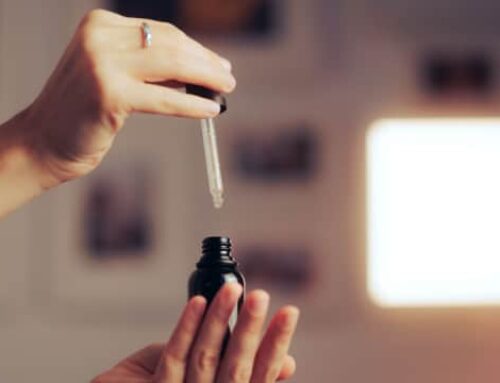With so many skincare products available, it’s hard enough to find the ones that are right for you. The struggle may be even more difficult when the labels aren’t as reliable as they should be. Brands often lack full honesty when it comes to how environmentally and skin-friendly they are and how safe the ingredients they use are. This is called “greenwashing”, referring to the common practice of labeling healthy items “green” to conjure the image of a nature scene.
But what exactly is greenwashing and how do you avoid brands that partake in this practice?
What is Greenwashing?
Greenwashing is not a new tactic. Everyone from hotels to oil companies has participated in greenwashed marketing. When fraudulent, deceptive, or even just exaggerated environmental, health, and safety claims are made in the marketing of a product, that’s greenwashing. According to Administrative Law Review, despite decades of the Federal Trade Commission (FTC) trying to get it under control, greenwashing is still an issue, especially in skincare.
No one wants harmful products or chemicals on their skin. As the science world is busy trying to prove what is truly harmful to ourselves and the planet, and in what doses, consumers are trying to navigate this unsettled science on the buying end. Some brands take advantage of this to sell more products. They put terms like “clean”, “pure”, “natural”, “hypoallergenic”, “green formula”, “safety-tested”, or “organic” on labels or in advertising despite their products including possibly harmful ingredients (to the skin and the environment). Unfortunately, these terms do not have formal legal definitions and are basically unregulated in the marketing space. They may even use attractive packaging to try to trick you into not looking more carefully at what’s inside.
In an attempt to appear to be safe and sustainable, companies will pour dollars into marketing and press instead of putting that money into actually making their products more environmentally friendly and safe. And because the beauty industry is mostly unregulated, they get away with it.
Luckily, consumers are becoming more and more aware of greenwashing and starting to look out for it.
Negative Effects of Greenwashing
Greenwashing can have a severe impact on the environment. When brands are reporting that they are helping the environment but are actually doing the opposite, we get harmed along with the planet.
Because of the lack of regulation, brands can include ingredients that are purported toxins, synthetics, and carcinogens and call their products “all-natural.”
Our body absorbs these ingredients which may cause significant harm over time. And these companies are profiting off of the harm they are doing to both the consumer and the environment.
Additionally, by being misleading about what they are doing for the environment and the “natural” ingredients they use, they make it even harder to find the brands that are actually doing the work of providing sustainable, safe, and environmentally friendly products.
Greenwashing harms the very people and environment it claims to be helping, according to Environmental Health Perspectives, a peer-reviewed journal, and contributes to consumer skepticism and the amount of misinformation available in the skincare industry. And they do this without breaking a single law.
What Are Common Greenwashing Claims?
But consumers aren’t completely powerless. You can be on the lookout for certain common greenwashing claims that brands use. If you see certain terms or phrases, you’ll now know to be more cautious.
Let’s look at some of the terms that may be misleading:
Hypoallergenic
Unfortunately, brands can put hypoallergenic on their product and have it still contain fragrances and other toxic chemicals. It just needs to produce fewer allergic reactions than other products.
Dermatologist-tested
This term typically refers to a patch test done by a dermatologist to see if a product created sensitivities or irritation. It doesn’t mean a dermatologist looked at the ingredients or that they recommend it.
Natural
Based on FDA regulations, there is no regulation on what the word “natural” means in skincare. It can mean whatever the company decides it means. And with greenwashing, it could mean just about anything. There are lots of natural items available that aren’t good for human consumption.
Organic
This is one of the few certifications regulated by the FDA, but for skincare, it only needs to contain a certain percentage of organic products to qualify for the seal. According to the FDA, it doesn’t mean the product is 100% organic. The amount it needs to qualify differs from state to state.
Clean
With the rise of clean beauty, you’ve probably seen “clean” on more products than ever. But it could literally mean anything. There is no regulation whatsoever on what the word means when it comes to skincare.
Chemical-Free
This is another term that has no regulation. A chemical is any kind of compound or substance. Water could be a chemical. Most of the things in skincare products could be considered chemicals so it’s almost impossible for a product to be chemical-free.
But because chemicals have a negative connotation, some skincare brands use this label to make themselves look more environmentally conscious and “clean.”
Botanical
Botanical simply means relating to a plant or coming from a plant. Whether it’s good for the environment or good for you doesn’t factor into the definition. There are plenty of plants that are toxic to humans. Even if the plant is beneficial to the skin, it may only be a small percentage of the product.
Ways to Avoid Greenwashed Products
With the prevalence of greenwashing, how do you avoid products that are actually harmful to you, animals, and the environment? Let’s look at a few tips you can take with you the next time you shop for skincare products.
Watch out for buzzwords
If a product has any of the buzzwords listed above, be skeptical. It may be true that it’s made with natural ingredients and that it’s organic but that doesn’t necessarily mean it’s good for you, your skin, or the environment. So don’t fall for the buzzwords on the bottle or packaging. Look closer.
Check labels and research
Checking labels and doing your research is the best way to avoid products and brands that take part in greenwashing. Take a look at the ingredients in the products you’re using now. Google any of the ingredients and see what they are.
Once you know what the dangerous ingredients are, you’ll know what to avoid the next time you go to the skincare aisle or shop for your favorite skincare online.
You can also type in the name of the skincare brand and “environment” into Google. See if the company has a track record of actually being environmentally friendly or if they have been caught harming the environment in the past.
Don’t fall for the green
While “green” packaging, including the color green, may make it seem like the product is better for you, don’t be fooled. The marketing department of many skincare companies is using that flower or that green color to give off an environmentally friendly vibe. It might be true for some brands, but others are using it deceptively to make it seem like they are “all-natural” or “clean.”
Schedule A Consultation
If you’re looking to find a skincare regimen that is good for you and your skin care needs, scheduling a consultation at Art of Dermatology at the Laser & Skin Surgery Center of New York is a great first step. Dr. Krant will listen to your concerns and provide you with research-tested products that will help you achieve your skincare goals.
To schedule a consultation today, call our New York City office at 212-488-5599 or our online contact form if you’re a new patient.
Jessica Krant, M.D., MPH, is a board-certified dermatologist with specialized experience in cosmetic, laser, surgical, and medical dermatology, but above all, Dr. Krant is most proud to be a caring, comprehensive physician who takes the time to listen and send her patients home with a smile.















Leave A Comment